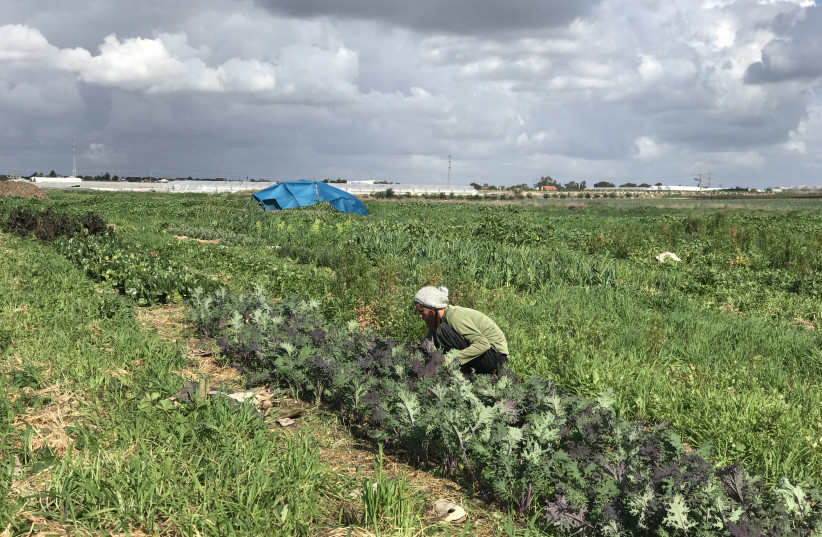This week’s parasha deals mostly with the commandment of shmita (the sabbatical year), a commandment that is fulfilled only in the Land of Israel.
A farmer works his land and is sustained by it for six years. On the seventh year, like the one we are in now, he is commanded not to cultivate or work the land.
Furthermore, the harvest that grows on the seventh year does not belong to the farmer, the owner of the field. Rather: “And [the produce of] the Sabbath of the land shall be yours to eat – for you, for your male and female slaves, and for your hired worker and resident who live with you. And all of its produce may be eaten [also] by your domestic animals and by the beasts that are in your land” (Leviticus 25:6-7).
This is a commandment devoid of economic logic, particularly when we are dealing with an economy based primarily on agriculture, as was common in the world in the times of the Torah. But even if it doesn’t seem economically logical, it is spiritually and morally logical.
Why is a farmer called upon to let his land rest? In literature from the Middle Ages, two main reasons for this were given. Maimonides (Rabbi Moses ben Maimon, 12th century, one of the greatest thinkers and rabbinic religious authorities in Judaism) explained in his book The Guide for the Perplexed that this commandment is among those whose purpose is to have us develop compassion for the weak and needy. In the seventh year, the harvest is divided among those who need it – the owner of the field, a slave, or a stranger. Even wild animals are equal to humans in eating from the field. The harvest is hefker – lacking ownership.
In Sefer Hahinuch – a book about the commandments in the Torah written in Spain in the 13th century, whose author is not definitively known – a different reason for this commandment is given:

“Therefore, He, blessed be He, did command to render ownerless all that the land produces in this year – in addition to resting during [the year] – so that a person will remember that the land, which produces fruits for him every year, does not produce them by its [own] might and virtue. For there is a Master over it and over its master, and when He wishes, He commands him [i.e., the master of the land] to render them [i.e., the fruit] ownerless” (Sefer Hahinuch, commandment 84).
Are these indeed two different reasons? Is there a disagreement here between commentators? It seems more likely that these are two parts of the same reason. When a person recognizes that ownership of his assets is not complete, and that God is the real master over him and his assets, he surrenders the social status that stems from the wealth he’s accumulated, and he is capable of recognizing that there isn’t actually any difference between him and anyone else, or even between him and a wild animal. He realizes he has no reason to be proud of his property. On the contrary, he is told to share the harvest with others.
Faith in God provides man with proportion regarding the concept of ownership. True, for six years society acts naturally, with owners of assets enjoying their property, and others less so. But once every seven years, man is required to remember who the true owner is. That reminds man that he cannot prevail over others because of property.
As a continuation of this, it is interesting to see, later in the parasha, several moral-social directives that stem from this principle; for example, the prohibition to deceive others or be fraudulent in trade; the commandment to lend money to someone needy without collecting interest; the obligation to treat even those forced to sell themselves into slavery – as was customary in the past – with fairness and respect; helping family members financially, and more.
The commandment of shmita is relevant not only for the seventh year. It is a commandment that wishes to change awareness, to lead a person to the profound understanding that he and others are all worthy of respect and compassion, regardless of their financial status.
This is a commandment that teaches us the power of faith in God to create a more compassionate and egalitarian society.
The impact of this commandment is felt also during the six other years. Even when the person does not share his harvest with others, he will remember that his ownership over the harvest does not bequeath more rights, and that others are worthy of compassion, respect and fair treatment, independent of their financial state. ■
The writer is rabbi of the Western Wall and holy sites.
